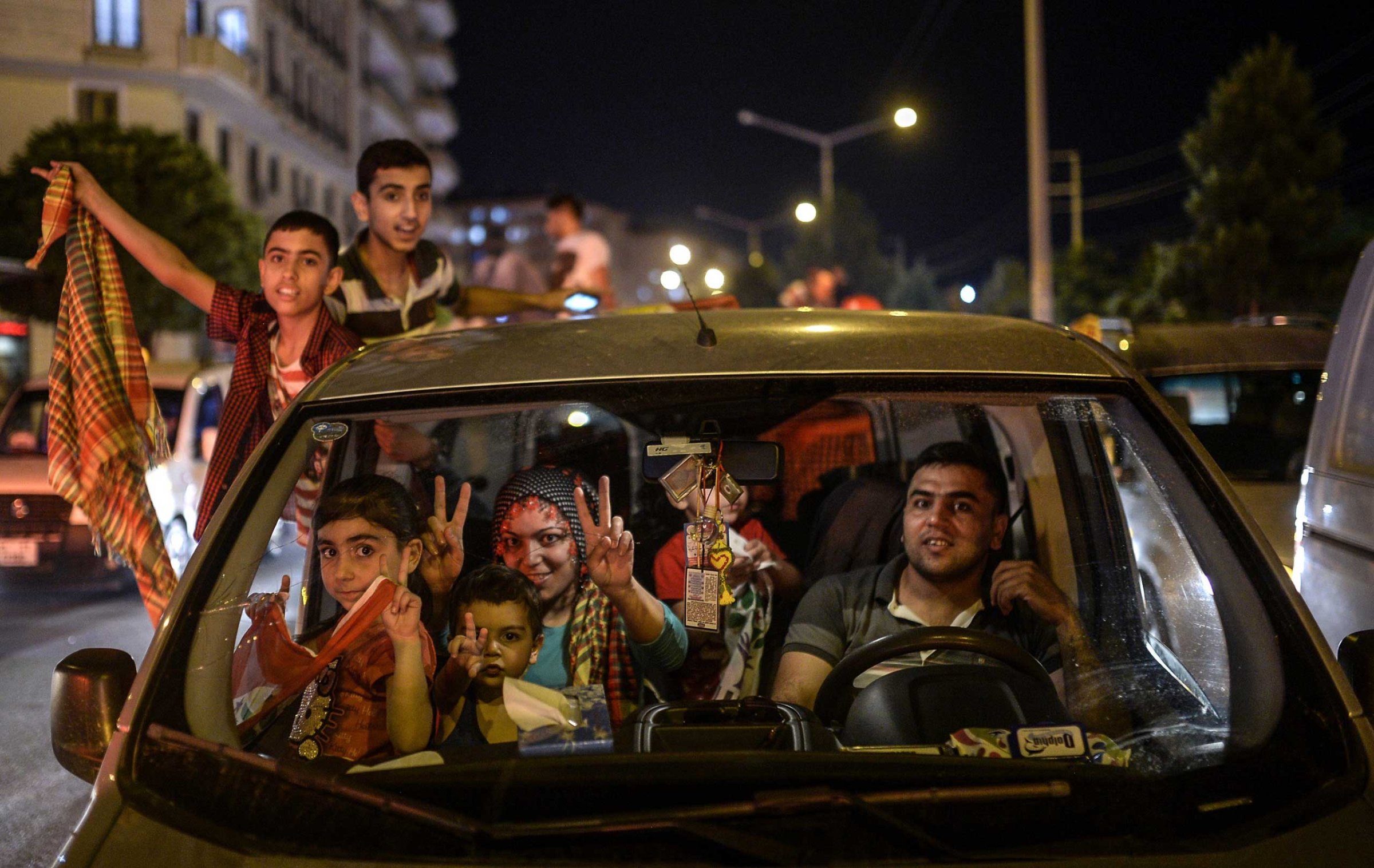
We have now exited the era of political certainty in Turkey: Sunday’s general elections herald a new, exciting era of reorganization, in which everything will need to change so everything can stay the same.
Over the last three months, Turkey’s president, Recep Tayyip Erdoğan, has pitched an undercooked, little-understood presidential system that would give him more political authority and the right to usurp his prime minister’s executive powers. Erdoğan’s project fell on deaf ears: Choosing the presidential system dream as its central campaign offering turned out to be a grave mistake for the Justice and Development Party (AKP), which ended up not even earning a simple majority in the Turkish parliament.
With its 40.8% of the vote and 258 elected MPs AKP’s vote fell embarrassingly short of forming a government, which requires 276. Over the past 13 years, the AKP was so accustomed to winning elections that its defeat didn’t feel real for many: AK Party’s vote fell from 21.4 million in 2011 to a jaw-dropping 18.7 million.
A new political system for Turkey is now off the table. People still support the conservatives (of which the AKP is the leading party), but the discourse of the one-man rule and leader cult has lost spectacularly. The elections will most probably lead to a period of soul-searching in Erdoğan’s party during its congress this September. Its current leader, Prime Minister Ahmet Davutoğlu, who turned out to be a disappointment in terms of inspiring its electorate, can be sidelined in the party. Turkey’s conservative voters did not identify with Davutoğlu, a professor of international relations, the same way they did with Erdoğan, the self-made politician and orator from İstanbul’s Kasımpaşa neighborhood. Davutoğlu lacks the personal history of Erdoğan (a lad from a poor neighborhood who was imprisoned for reading a poem before forming Turkey’s arguably most ambitious political machine) and his tireless guardianship of the AKP’s time in power did not exactly excite the electorate.
Enter Selahattin Demirtaş, the leader of the left-wing HDP which has transformed Turkey’s political scene beyond return. With its 13% vote and 80 MPs in parliament, HDP has the same political wind behind it as the liberal ANAP in 1980 and the AKP in the early 2000s. HDP’s political discourse is such a breath of fresh air that it stole hundreds of thousands of votes from AKP voters. It’s a coalition of underprivileged social segments that people can easily identify with; its leader has a story, passion and guts. Thirty two of HDP’s legislators are women, thanks to which we will now have 90 female members of parliament, the highest in Turkey’s history. Another piece of good news: For the first time in 54 years, Turkey has elected three Armenian citizens to parliament.
The main opposition party, the CHP, regained its vote with 25% while the nationalist MHP surged to 16.3% from 13% in 2011, an increase of almost two million votes, which was the most interesting (and for some, worrying) development of the elections. The leader of the MHP quickly announced his lack of interest in forming a coalition with either the CHP, the HDP or the AKP.
Now, it’s not clear what will happen next. The HDP built its election campaign on fighting against Erdoğan’s presidential system, but it can potentially work with the AKP if the party choses to return to its reformist, conciliatory roots. Meanwhile a coalition between two biggest parties, AK Party and CHP is a possibility, albeit a somewhat distant one. The common feature of all those options will be a strong distaste for the presidential system.
The most likely outcome of Sunday’s political drama will be early elections in six months. The electorate’s strongest message is that they dislike the kind of aggressive political tone right-wing media and politicians have used this spring to criminalize and victimize minorities.
Turks never forgave their country’s establishment for putting Erdoğan behind bars in 1999. In Sunday’s elections they showed a similar disdain for powerful figures looking down on people because of their sexuality, ethnicity or political beliefs. One jingoistic newspaper had portrayed an HDP candidate as a “homo supporting gay marriage” in an effort to warn “religious Kurds” about this dangerous man; another paper ran a headline about Demirtas “eating bacon in Germany” as proof of his ugly character .
This discourse proved to be a failure, alienating Kurdish voters of the AKP and not winning the hearts of Turkish nationalists who now more passionately support the MHP. The AKP did not employ such tricks or political discourse in its first successful years and in the New Turkey of 2015, people don’t want to see victimization anymore and any macho, jingoistic discourse or party line that victimize others seems set to lose in this new, yet unexplored land of opportunities.
More Must-Reads from TIME
- Donald Trump Is TIME's 2024 Person of the Year
- Why We Chose Trump as Person of the Year
- Is Intermittent Fasting Good or Bad for You?
- The 100 Must-Read Books of 2024
- The 20 Best Christmas TV Episodes
- Column: If Optimism Feels Ridiculous Now, Try Hope
- The Future of Climate Action Is Trade Policy
- Merle Bombardieri Is Helping People Make the Baby Decision
Contact us at letters@time.com